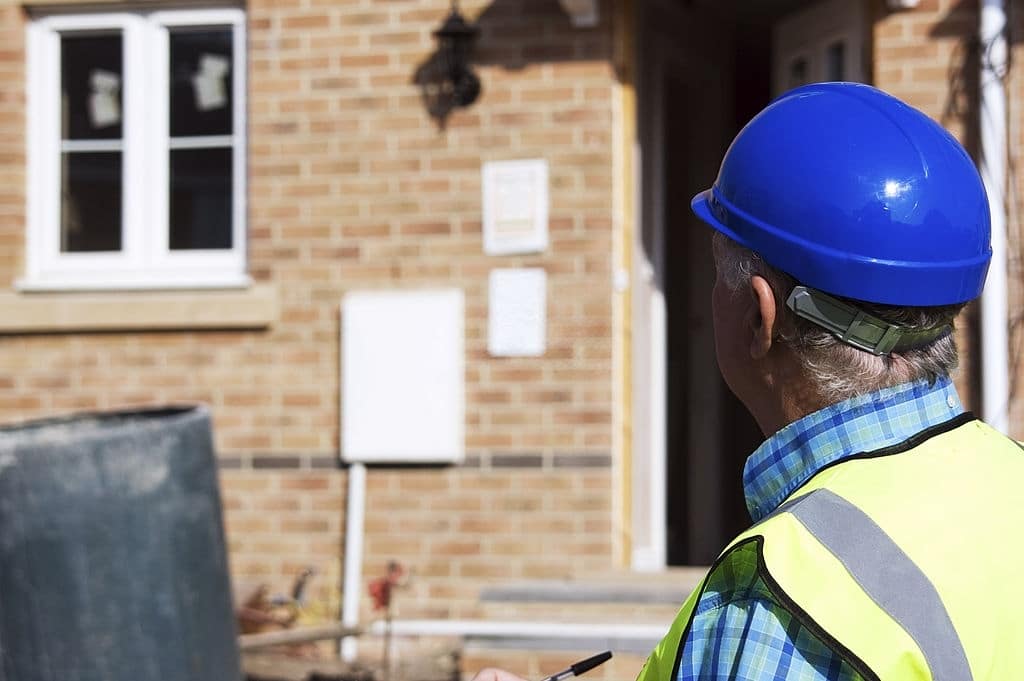A party wall is a wall or structure that is shared by two properties next to each other. This is common in terraced or semi-detached homes. The Party Wall Act 1996 provides a framework for resolving disputes that may arise between neighbours regarding adjoining walls, boundary walls, and excavation works near a shared boundary.
Such disputes can arise when one owner wishes to undertake building works that affect the shared wall or structure, such as installing new foundations, modifying or repairing the wall, or adding extensions.
The Party Wall Act sets out rules and procedures for notifying neighbours of proposed works, agreeing on terms, and resolving any possible disputes. Disputes may arise if one neighbour disagrees with the proposed works or the terms proposed or if there is a disagreement over the scope or cost of the works.
Before jumping right into what these disputes are, what causes them, and how to avoid them, we will first explain the concept of “party walls,” which are common walls or structures that separate two properties owned by different people. We will also discuss the Party Wall Act, disputes, the reasons behind them, and ways to avoid them in the later sections of the blog.
What is a Party Wall?
A party wall is a wall that separates two properties owned by different people. It can also mean other shared structures, such as floors and ceilings. These walls are common in urban areas where buildings are built close to each other. They serve as a line between the two properties.
A party wall’s goal is to ensure that both property owners have the same rights and responsibilities regarding the wall. Both parties own the wall, and neither can change it without the other’s permission. This keeps one property owner from changing the wall, which could harm the other owner’s property or safety.
These are also important because they help prevent fights between neighbours. They clarify the line between two properties and ensure that both people know their rights and responsibilities. Moreover, these can be a safety measure because they are often built with fire-resistant materials to stop fires from spreading between properties. Overall, these combined walls are an important part of keeping the peace and harmony between people who own properties next to each other.

Party Wall Act 1996
The Party Wall Act is a law in the UK that was put in place to help property owners settle disagreements about party walls and other shared structures between properties. The act establishes a legal framework for the resolution of disputes between property owners in relation to these walls and sets out clear procedures that must be followed before any work is carried out on the wall.
The Party Wall Act is crucial because it helps to prevent disputes between neighbouring property owners and provides a clear legal framework for resolving disputes that do arise. The act requires property owners to follow specific procedures when making changes to adjoining property, including serving notice to their neighbours and obtaining their consent.
This helps to ensure that both parties are aware of their rights and responsibilities and that any work carried out on the wall is done safely and without causing damage to the neighbouring property.

Party Wall Disputes
An important thing to keep in mind is that these disputes can occur anytime. In terms of real estate, a party wall is a common wall shared by two independent property owners. It can either be structural or non-structural. For instance, in the former case party wall is a dividing wall between two houses with terraces; in the latter scenario, it can be a garden wall.
Sometimes a single wall on an owner’s land utilized by two (or more) proprietors to separate their buildings is also labelled as a party wall. You find party walls in places where various inhabitants share a multi-unit structure, such as apartment suites, office complexes etc.
The standard wall raises disagreements among the neighbours over the boundaries and is termed a party wall dispute.

Reasons behind These Disputes
Boundary wall disputes can occur for various reasons, some of which are as below;
Situation 1
One of the owners moves the fence or starts construction without the consent of the other.
Situation 2
Owners rely on an arrangement that does not explicitly explain what is on the grounds.
Situation 3
Failing to comply with the Party Wall Act can also lead to boundary disputes.
Situation 4
One such situation ascended when one of the two owners sent a legal written notice to its adjoining neighbour regarding the construction he would start, but the neighbour fails to reply with his permission for various reasons.

How to Avoid These Disputes?
All disputes can be settled if both owners accept and follow the legal procedures. For instance, discussing the construction plans with your adjoining owner can save you from any legal engagements. Try to be honest about the amount and type of construction you will start and deliberately discuss the plan in detail.
Resolution to These Disputes
If everything fails and the party wall dispute arises anyway, do not worry, as every problem has a solution. The boundary wall dispute resolution acts in two ways;
- Hiring a party wall surveyor.
- Formulating a party wall award.
- Sending a notice to the adjoining building owner.
Do remember that for the second and third resolutions also, a surveyor is equally important as all the legal frameworks will be done by a surveyor. So, keep in mind to hire a surveyor in order to save yourself from getting into any dispute with the adjoining building owner.
Party Wall Surveyor
The first way involves the hiring of an independent party wall surveyor. A surveyor is a person who works for neither of the two parties; instead, he is impartial and solves the issue in a completely unbiased manner. He is bound to make an equitable decision based on Party Wall Acts’ clauses and not on the owner’s wishes and grants. A surveyor will ensure there aren’t any problems for you and the neighbouring building owner. Following are some of the qualities that are a must-have in a surveyor.
The surveyors must be;
- An experienced individual with a handful amount of knowledge regarding the Party wall Act.
- Have a complete understanding of the construction business.
- Well-versed with the details of both the adjoining properties.
The adjacent owners have the liberty to appoint a single-party wall surveyor or two separate individuals as surveyors as per their liking.

Party Wall Award
A party wall award is a legal agreement between two or more property owners who share a common boundary, known as a “party wall.” The award outlines the rights and responsibilities of each party with regard to the party wall and any building work that may be carried out on or near it.
A party wall award is typically required when a property owner wants to carry out building work that affects a shared wall, such as building an extension or carrying out repairs. The award is meant to protect both parties’ interests and ensure the work is done safely and without damaging either property.
The party wall award can help settle disputes over the adjoining walls by giving both sides a clear, legally binding agreement. If a dispute arises during the building work, the party wall award can be referred to as evidence of each party’s agreed rights and responsibilities. This can stop the fight from getting worse and may give you a way to solve the problem without taking expensive and time-consuming legal action.
For such purposes, a surveyor is hired to do the job. The surveyor then protects you and your property by having an agreement with the adjoining owner through a party wall award.
Party Wall Notice
A party wall notice is a letter that a property owner sends to their neighbours to let them know about work that will be done on a shared wall, boundary line, or structure that may affect them. It is a crucial part of these disputes because it is the lawful way to tell the owner next door about the work you want to do and get their permission or refusal before proceeding.
The party wall notice must include specific details about the work, like when it will start, how long it will last, and what it will be. The notice must also give a detailed description of the wall or structure that will be worked on, as well as any steps that will be taken to protect the neighbour’s property from damage or disturbance.
Once the party wall notice has been given, the owner next door can either agree or disagree. If they say yes, they decide to do the work and any other terms and conditions that might come with it. If they disagree, they can hire a surveyor to agree with the property owner’s surveyor.
If the neighbouring owner does not respond to the notice within 14 days, the property owner can assume that the neighbour has agreed. But it’s always a good idea to talk to a barrister and make sure all the proper steps are taken to avoid legal problems in the future.

Conclusion
Party wall disputes are inevitable, but they certainly do not have to turn into warfare with your neighbours. To avoid these disputes, Party Wall Act is designed that ensure the settlement of these clashes by keeping intact the rights of adjoining owners in a swift, cost-effective, and peaceful manner. Besides, you can always hire a qualified surveyor to help you maintain a cordial relationship with your neighbours and do things professionally.
Read more about Party Wall:
- How Long Does a Party Wall Agreement Last?
- Retrospective Party Wall Agreement UK
- What Happens If you Fail To Serve A Party Wall Notice in 2024?
- HOW USING A CHEAP PARTY WALL SURVEYOR CAN SUBSTANTIALLY ADD TO YOUR COST
- HOW LONG DOES A PARTY WALL AGREEMENT LAST

